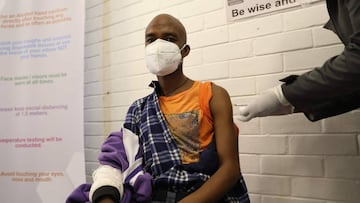What you need to know about the first vaccine trials in Africa
South Africa joins the countries in which a potential vaccine for COVID-19 will be tested.

Many nations around the world are involved in an uphill race to discover a vaccine that cures COVID-19.
Scientists from USA, UK, China, and other countries have been tirelessly working on many formulas to secure a final and effective vaccine that can be applied to all patients in different environments.
A group of doctors suggested that Africa would be a perfect environment for medical testing, as trials have to be implemented in various settings and environments before deciding that one vaccine can be administered to all people fighting COVID-19.
In addition, carrying out vaccine trials on the African continent can be faster and less costly due to the easiness of finding volunteering patients who lack access to good health care.
African resentment:
These suggestions were initially encountered with condemnation by Africans claiming that their continent is not such a laboratory with many disgruntled individuals launching social media campaigns to express their anger.
However, scientists believe that the absence of Africa participation in these trials could jeopardize all the effort put in developing a vaccine.
Related stories
South Africa is the first African nation to have positively responded to the western requests, as starting this week the country will witness the trials of a vaccine developed by Oxford university along with UK and Brazil.
How the vaccine works:
The vaccine that is set to be tried is called ChAdOx1 nCov-19. It's supposed to produce a certain type of protein, that researchers earlier found on the surface of the novel coronavirus. Researchers have shown that the antibodies produced against that protein following infection can eliminate or at least neutralize the virus effect.

